We all learn about the five senses in school⁚ sight, smell, taste, touch, and hearing. But Ive always been fascinated by the idea of a “sixth sense.” It seems that the animal kingdom is full of creatures that possess extraordinary sensory abilities that go beyond our basic five. Its a bit like having a superpower!
Electroreception in Sharks
I remember my first diving trip, years ago. I was terrified of sharks, but the instructors assured me they werent interested in humans. They explained that sharks have a remarkable sixth sense called electroreception. They have special organs called ampullae of Lorenzini, mostly around their heads, that can detect the faint electrical fields generated by the muscle contractions of other animals. Its how they can find prey hiding in the sand or navigate through murky waters. Its like having a built-in metal detector!
Magnetoreception in Birds
Ive always been amazed by how birds navigate during migration, flying thousands of miles without getting lost. It turns out they have a sixth sense called magnetoreception. They can actually sense the Earths magnetic field, like an internal compass, to guide their journeys. Scientists believe they might have special cells in their beaks or eyes that contain iron-based molecules that align with the magnetic field. Its like having a built-in GPS!
Infrared Sensing in Snakes
My friend Sarah is terrified of snakes. Shes always worried about stumbling upon one on a hike. Snakes, especially pit vipers like rattlesnakes, have a heat-sensing sixth sense. They possess pit organs, located between their eyes and nostrils, that can detect infrared radiation, which is heat. This allows them to “see” the body heat of their prey, even in the dark. Its like having thermal vision goggles!
Echolocation in Bats and Dolphins
My son loves watching documentaries about bats and dolphins. These animals have a sixth sense called echolocation. They emit high-pitched sounds that bounce off objects in their environment, and they can then interpret the echoes to “see” their surroundings. Bats use it to navigate and hunt insects in the dark, while dolphins use it to find fish and navigate in murky waters. Its like having sonar!
Other Amazing Animal Senses
These are just a few examples of the incredible sixth senses that animals possess. There are many other fascinating abilities out there, like⁚
- The ability of some fish to sense changes in water pressure, helping them to detect predators or prey.
- The incredible sense of smell in dogs, which is thousands of times more sensitive than ours.
- The ability of cats to see in low light conditions, thanks to a reflective layer in their eyes.
The animal kingdom is full of sensory wonders that we are only beginning to understand. These sixth senses allow animals to thrive in their environments, finding food, avoiding danger, and navigating the world in ways we can only imagine. It makes me realize how much more there is to learn about the natural world and the amazing creatures we share it with.
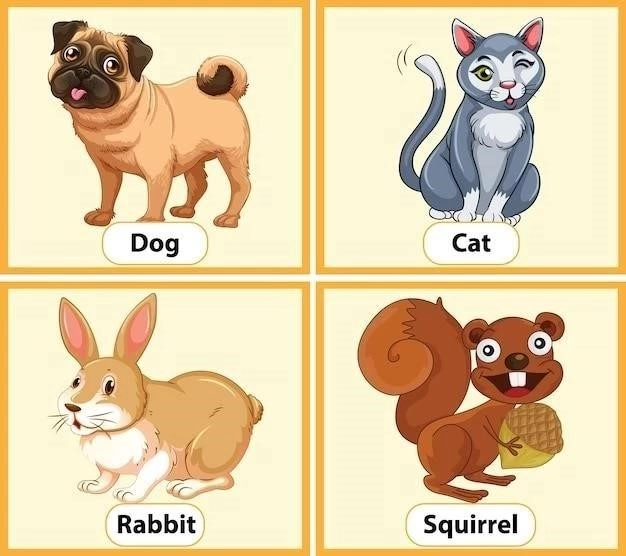
My Brush with Canine Intuition
While researching this article, I couldnt help but think about my own dog, Bailey, a goofy golden retriever with a heart of gold. He doesnt have electroreception or echolocation, but there have been times when I swear hes sensed things I couldnt. One evening, we were walking home after dark, Bailey trotting along happily beside me. Suddenly, he froze, his ears pricked, a low growl rumbling in his chest. I didnt see or hear anything unusual, but Bailey was clearly agitated. I tightened my grip on his leash and cautiously continued walking, my heart pounding. Just then, two men rounded the corner ahead of us, talking loudly and gesturing animatedly. They werent doing anything particularly threatening, but I couldnt shake the feeling that Bailey had sensed something off about them, something I had missed entirely. It made me wonder about the subtle cues dogs pick up on, perhaps a change in scent or body language that we, with our limited human senses, simply dont perceive.

The Mystery Remains
Exploring the world of animal senses has been a humbling experience. Its a constant reminder that our human perception is just a sliver of whats possible. There are worlds of sensory information out there that we are blind and deaf to. While we may never fully understand the intricacies of a sharks electroreception or a pigeons magnetoreception, acknowledging these extraordinary abilities deepens our appreciation for the wonders of the natural world. And who knows, maybe with a little more observation and an open mind, we might even unlock some of the mysteries of our own “sixth senses.”
Baileys reaction that night sparked a new curiosity in me. I decided to delve deeper into the world of animal senses, not just through research, but through experience. I started small, paying closer attention to Baileys behavior. I noticed how his ears swiveled like radar dishes, picking up the faintest sounds—a squirrel rustling in leaves a block away, a car door clicking shut houses down. His nose, constantly twitching, seemed to paint a picture of the world through scent, a world I could only catch fleeting glimpses of.
Inspired, I signed up for a horseback riding lesson at a local stable. Ive always loved horses, their size both intimidating and majestic. As I rode through the wooded trails, I felt a new awareness of my surroundings. The horse, a gentle giant named Samson, seemed to sense the path even before I could guide him, his hooves finding their way with an instinct I envied. When a deer darted across the path, Samson didnt shy away in fear, but instead, his ears pricked, his nostrils flared, as if he was taking in every detail of the encounter, assessing the situation with a wisdom I couldnt fathom.
My explorations continued at the city aquarium. I found myself drawn to the jellyfish exhibit, mesmerized by their ethereal movements. As I watched them pulse and drift, I learned that some jellyfish species have light-sensing organs called ocelli, which allow them to differentiate between light and dark, even though they lack eyes as we know them. It struck me that even these seemingly simple creatures possessed sensory adaptations that allowed them to navigate their watery world.
Each encounter, from observing Baileys keen senses to experiencing the world from the back of a horse, has filled me with a sense of wonder and a deep respect for the diversity and complexity of the animal kingdom. Its made me realize that our human-centric view of the world is just one perspective, a single note in a symphony of senses that we are only beginning to comprehend. And while we may never truly know what its like to see the world through a dogs nose or a jellyfishs ocelli, the pursuit of that understanding is a journey that continues to fascinate and inspire me.
My fascination with animal senses didnt stop there. I became determined to experience these “extra” senses for myself, or at least get as close as possible. My first experiment involved replicating a bats echolocation. I downloaded an app on my phone designed for the visually impaired, which emitted a clicking sound and then translated the returning echoes into audible cues.
I started in my living room, cautiously navigating around furniture with my eyes closed, relying solely on the apps feedback. The experience was disorienting at first, a cacophony of clicks and whistles bombarding my ears. But gradually, I began to discern patterns in the sounds, a subtle shift in pitch indicating a nearby wall, a rapid staccato telling me I was approaching a bookcase.
Emboldened, I took my experiment outside, to a nearby park. The increased complexity of the environment, with trees, lampposts, and park benches, proved more challenging. I bumped into a few things (and startled a jogger or two) as I tried to fine-tune my echolocation skills. It wasnt easy, but I started to get a sense of the spatial awareness that bats must possess, their world painted not in light and shadow, but in echoes and reverberations.
Next, I turned my attention to the sense of smell, specifically, trying to understand how my dog Bailey experiences the world through his olfactory prowess. I gathered a collection of essential oils, each with a distinct aroma—lavender, peppermint, citrus, and earthy sandalwood. I soaked cotton balls in each scent and hid them around my apartment, challenging Bailey to find them using only his nose.
Watching him work was incredible. His nose, a flurry of sniffs and twitches, led him on a scent-driven treasure hunt. He uncovered hidden cotton balls tucked behind curtains, under rugs, even one cleverly disguised in a potted plant. The experience highlighted the limitations of my own sense of smell, a world of aromas reduced to faint whispers compared to the olfactory symphony Bailey must experience.
My journey into the world of animal senses is far from over; Each experiment, each encounter with a creature whose sensory perception differs from my own, deepens my appreciation for the vastness and wonder of the natural world. Its a humbling reminder that our human experience is just one way of perceiving reality, a single note in a grand, sensory orchestra. And I, for one, am eager to keep listening.

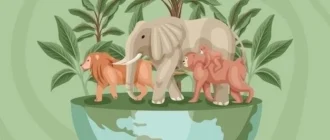

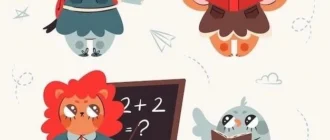
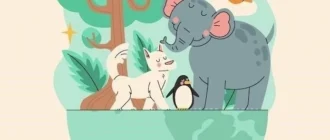

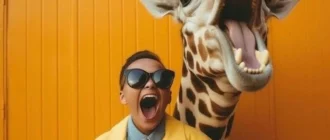
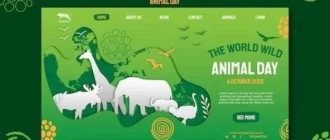



I wonder if humans have any latent “sixth senses” that we’re not even aware of.
Snakes are definitely not my favorite creatures, but their heat-sensing abilities are pretty cool.
I’ve always been a bit scared of sharks, but their electroreception abilities are undeniably impressive.
This article has definitely sparked my curiosity about animal senses. I’m going to have to do some more research!
Imagine if we could harness these animal senses for our own use! The possibilities are endless.
Dolphins are amazing communicators, and their use of echolocation plays a big part in that.
This article is a great reminder that we share the planet with so many fascinating creatures.
I’ve always been in awe of bird migration. The fact that they can navigate across such vast distances using the Earth’s magnetic field is mind-blowing!
This article makes me want to learn more about animal behavior and sensory biology.
I’m always amazed by the ingenuity of nature and the incredible adaptations that animals have developed.
I wonder if there are any other “sixth senses” out there in the animal kingdom that we haven’t discovered yet!
Infrared sensing in snakes sounds like something out of a science fiction movie! It’s amazing how they can literally see heat.
Dolphins are such intelligent creatures. Their ability to use echolocation to navigate and find food is truly remarkable.
The world is a much more amazing and mysterious place than we often realize.
I find this whole concept of a “sixth sense” in animals absolutely fascinating! It always makes me wonder what it would be like to experience the world through their senses.
It’s fascinating to think about how these “sixth senses” have evolved in different species to help them survive and thrive in their environments.
I love learning about the natural world and all its wonders!
I’m grateful for scientists and researchers who are constantly expanding our understanding of the animal kingdom.
I love watching videos of bats using echolocation to navigate through obstacles. It’s like a real-life superpower!
This article is a great reminder of how diverse and incredible the animal kingdom truly is.
I remember learning about these animal senses in school, but reading about them again makes me appreciate how incredible the natural world is.
The way sharks can detect electrical fields is incredible! I remember seeing a documentary about it once, and it showed how they use it to hunt even in complete darkness.
This article is a fascinating glimpse into the sensory world of animals.
The more I learn about nature, the more I realize how much we still don’t know.
Bird migration has always been a mystery to me, but magnetoreception makes so much sense!
My daughter is obsessed with bats! She loves learning about how they use echolocation to fly and hunt in the dark.
It’s amazing how much we can learn from observing and studying the natural world.